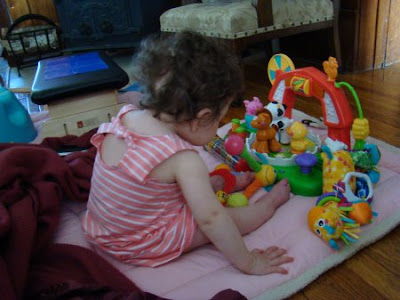
There is often a vaginal discharge in the first days after birth. It appears as white mucus and may he ting with blood. Sometimes both baby boys and girls develop a swelling and fullness of their breast. They may actually secrete milk, which sometimes even exudes from the nipples. You should not squeeze this milk out deliberately; such squeez¬ing may result in an infection or an abscess. Both vaginal discharge and milk secretion are caused by maternal hormones which crossed the placenta: before birth.
The newborn usually passes urine in the first twelve hours, but delays up to 24 hours are not unusual. If the baby does not pass urine by then, inform your doctor. The baby's bowels usually start functioning in 24 hours. Initially, the child will pass a blackish motion, called meconium. The normal, yellow-colored motion appears only around the third or fourth day of life.















